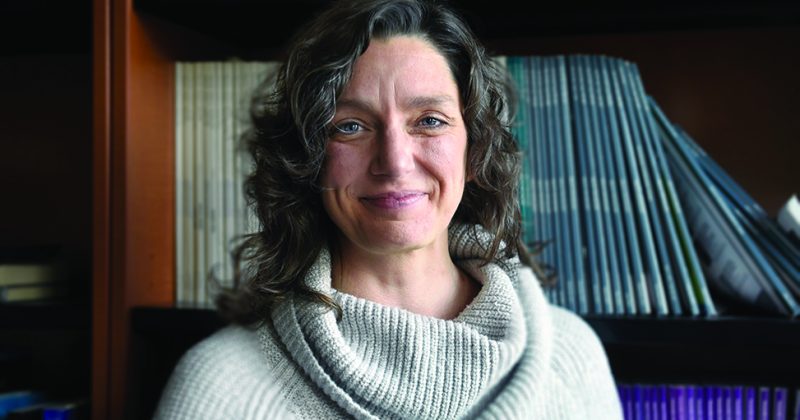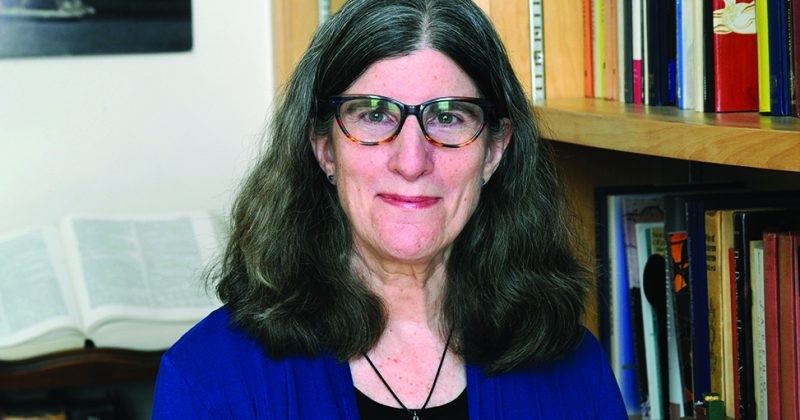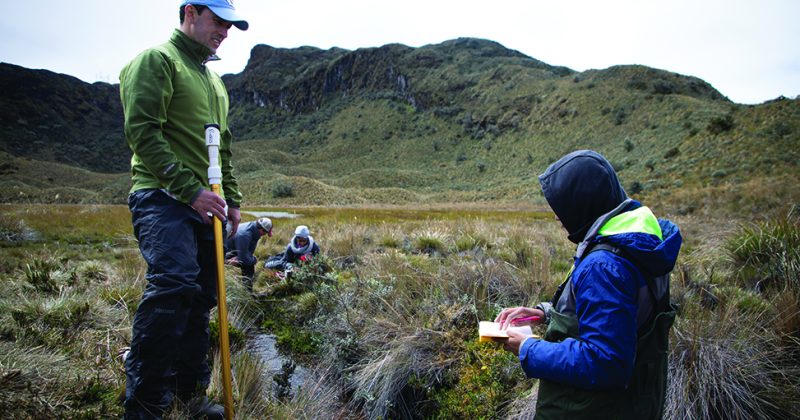
As anticipation and anxiety fuel debates about artificial intelligence, UNC’s AI Project brings together scholars from philosophy, computer science and linguistics to explore its implications.
Imagine sitting at home, scrolling through suggestions for what to watch next on Netflix, when your cellphone buzzes. You pick it up — your Face ID unlocks the phone — and you see an alert about suspicious credit card charges. You call the bank and go through a series of automated prompts that lead to the fraud department.
All of these activities are powered by artificial intelligence (AI).
“What’s possible nowadays seemed like magic 10 years ago,” said Thomas Hofweber, a professor of philosophy and director of the AI Project at UNC.
While AI has been around for decades, the rate at which the technology is progressing is unprecedented.
“It’s become more and more urgent,” Hofweber said. “It’s happening now.”
That urgency has prompted a new initiative in the College of Arts and Sciences. Housed in the philosophy department and conducted in collaboration with computer science, linguistics and the Parr Center for Ethics, the AI Project is designed to advance research and collaboration on the philosophical foundations and significance of artificial intelligence and virtual worlds.
The inspiration for the partnership dates to Hofweber’s time as a graduate student at Stanford University, where he began learning about artificial intelligence.
“This was the ’90s and what people were doing with AI was very different from what it is now,” he said.
Through coming together across disciplinary boundaries, Hofweber and his colleagues at UNC hope to generate more open dialogue and ultimately a more comprehensive understanding of artificial intelligence and its implications.
According to Peter Hase, a Ph.D. candidate in computer science, the AI Project will help ensure that people in his department are using the right approaches in their research and sharing their findings accurately.
“Computer scientists are doing impressive things,” Hase said. “But they sometimes use certain terminology loosely or misuse it.”
For example, a computer scientist may unintentionally anthropomorphize a chat bot by giving it a human name or gender. Such an action raises philosophical questions about how autonomy and morality should (or shouldn’t) be applied to AI.
“All these people have different expertise,” Hofweber said. “Computer scientists do the actual training and programming on language models — but they don’t spend years debating precisely how language works. That’s what linguists do.”
Katya Pertsova is an associate professor of linguistics at UNC. For professionals in her field, she says a big question is: When are we going to have artificial intelligence that is capable of language to the same extent as humans?
“I don’t think we are there yet,” Pertsova said. “But we’re definitely closer to it.”
While large language models like ChatGPT are very adept at generating certain kinds of text, they also “fail spectacularly,” according to Pertsova, as recent media coverage has shown.
But it’s only a matter of time until computer scientists correct those failures.
“It’s something that is going to change all of our lives very quickly,” Pertsova said. “Having multiple scholars interacting with this topic could lead to a better understanding of its issues.”
In his course, “AI and the Future of Humanity,” Hofweber and his students regularly discuss some of these big issues, like: What is the moral status of an AI system? Do you need a biological basis for consciousness? What is the difference between AI and a non-human animal?
Hofweber is quick to point out that posing these types of questions is not a simple thought experiment.
“There are a lot of philosophical issues that apply to general AI systems, and philosophical reflection can show us a great deal about how our minds work,” he said. “All of these debates are relevant.”
By ML Parker ’10
Published in the Spring 2023 issue | The Scoop
Read More

Gratitude and shared laughter are like probiotics for your relationship
UNC psychologist Sara Algoe and her team are taking a…

New director of Jewish studies center brings love of classics to her role
Patricia Rosenmeyer takes the helm as the Carolina Center for…

Carolina wins grant for climate change research in Ecuador
With a grant from the 100,000 Strong in the Americas…

